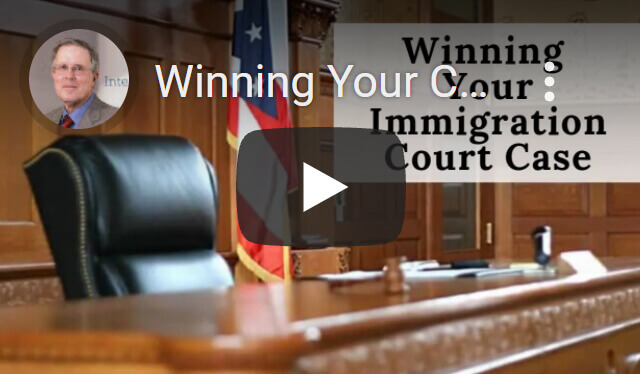 E-Verify (EV) is a web-based system through which employers electronically confirm the employment eligibility of their employees.
E-Verify (EV) is a web-based system through which employers electronically confirm the employment eligibility of their employees.
In the process, employers create cases based on information taken from an employee’s Form I-9, Employment Eligibility Verification. The system then electronically compares that information to records available to the U.S. Department of Homeland Security (DHS) and the Social Security Administration (SSA). The employer usually receives a response within a few seconds either confirming the employee’s employment eligibility or indicating that the employee needs to take further action to complete the case.
Client Reviews

If You Want the Best Result Possible
“Mr. Shusterman and his law firm have represented both me personally and the nonprofit organization that I am associated with. The cases have ranged from the simple to the complex and contentious. Each case has been successfully completed. It is very simple – if you want the best result possible, then select the Law Offices of Carl Shusterman.”
- Richard B. Knapp, Chicago, Illinois
Read More Reviews
Zoom Consultations Available!
The program is administered by SSA and U.S. Citizenship and Immigration Services (USCIS). USCIS facilitates compliance with U.S. immigration law by providing program support, user support, training and outreach, and developing innovative technological solutions in employment eligibility verification.
The program was originally established in 1996 as the Basic Pilot Program to prevent undocumented workers and other people who have violated immigration laws from obtaining employment illegally in the United States. In August 2007, DHS started by requiring all federal contractors and vendors to use E-Verify. The Internet-based program is free and maintained by the U.S. government. Use of the program at the state level varies; some states have mandated use of E-Verify or similar programs, while others have discouraged the program.
The program compares information from an employee’s Employment Eligibility Form I-9 to data from U.S. government records. If the information matches, that employee is eligible to work in the United States. If there is a mismatch, the program alerts the employer and the employee is allowed to work while he or she resolves the problem; they must contact the appropriate agency to resolve the mismatch within eight federal government work days from the referral date. The program is operated by the DHS in partnership with the Social Security Administration.
Research shows that the program harms the labor market outcomes of illegal immigrants and improves the labor market outcomes of Mexican legal immigrants and U.S.-born Hispanics, but has no impact on labor market outcomes for non-Hispanic white Americans. A 2016 study suggests that the program reduces the number of illegal immigrants in states that have mandated its use for all employers, and further notes that the program may deter illegal immigration to the US in general.
Visit the EV data page for in-depth information on the program, including performance and usage statistics, reports, system enhancements, and the participating employer search tool.
Employees whose E-Verify cases are referred to SSA on or after July 15, 2022, will have the normal 8 federal working days to contact their local SSA office to begin resolving the mismatch. At the onset of the COVID-19 Pandemic in March 2020, EV extended the timeframe for an employee to take action to resolve a Social Security (SSA) Tentative Nonconfirmation (mismatch). E-Verify cases referred on or after July 15, 2022, EV will no longer provide extended timeframes for employees to visit SSA to resolve these mismatches.
TNCs referred to SSA between March 2, 2020 and July 14, 2022, will continue to benefit from an extended timeframe for resolution of the SSA mismatch, with staggered deadlines depending on the date of the referral to SSA. However, there is an absolute deadline of September 29, 2023.
Below are some links discussing and containing information on the program in which many of our corporate clients participate.
E-Verify – General Resources
- E-Verify Page (DHS)
- Employer Resources (DHS)
- Questions and Answers (DHS)
- DHS Videos
- What is a Tentative Nonconfirmation – TNC? (DHS)
- E-Verify User Manual
- SOCIAL SECURITY ADMINISTRATION RESUMES E-Verify OPERATIONS (July 2022)
- Employee Rights and Responsibilities (DHS)

- How to Correct Your Immigration Records after Resolving a Tentative Nonconfirmation
- myE-Verify (DHS)
- MyE-Verify – A Good Tool For Employers To Avoid I-9 Fines
- Participating Employers (DHS)
- Employee Rights Toolkit
- Federal Contractor Q and A’s
- Quick Reference Guide for Employers
- User Manual for Employers
- User Manual for Federal Contractors
- Employer DOs and DON’Ts (Justice Department)
- How Do I Use EV? (USCIS)








